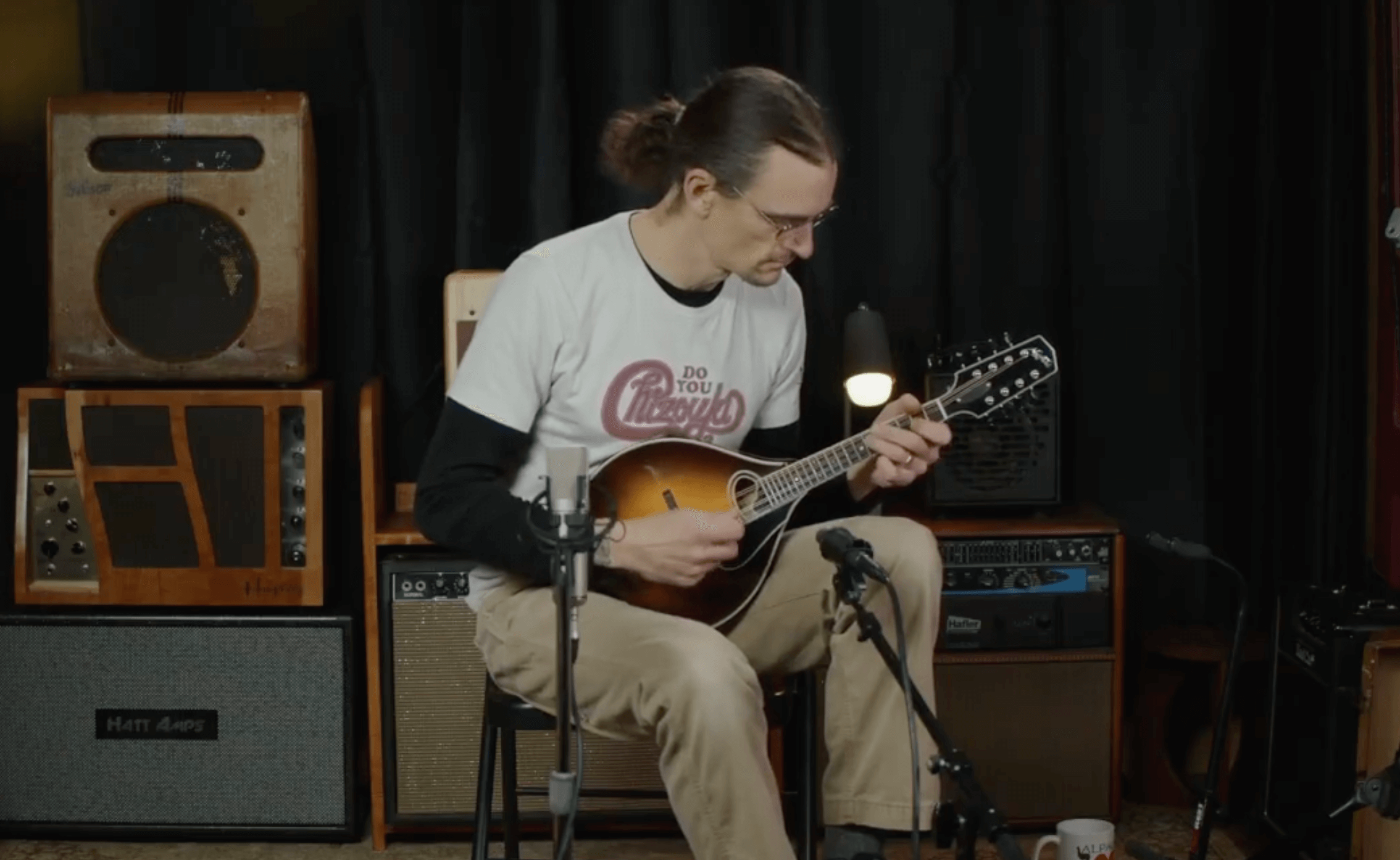All About the Dobro
Mike Witcher discusses resonator guitar basics, types of steels, strings, fingerpicks, and more.
In this video
Peghead Nation dobro instructor Mike Witcher discusses the fundamentals of resonator guitar construction, its history, accessories, and playing techniques in this introduction to the resophonic guitar. Mike demonstrates how to hold the instrument and fit fingerpicks, and talks about tunings and bar options.
The dobro’s history
“Back before electric guitars, to make guitars louder, a couple of guys invented this thing, under this pie plate that is called a resonator or a cone. Basically, it’s an acoustic speaker. In the twenties, they moved here to the United States and joined forces and started the National Guitar Company. And when they split from National, they started the Dobro Company. Their names were Dopyera Brothers, shortened it to Dobro. So this is basically the precursor to the electric guitar to make guitars louder.”
How to properly hold and play the instrument
“I play it lap style sitting flat on my lap which is pretty common for Hawaiian and bluegrass music. And just some basic ideas about playing this instrument. When you sit down to play, it’s nice to have your left leg underneath the neck for support. I like to put my left leg underneath the neck and I push the instrument away from my body a little bit so that my arms can rest naturally instead of getting caught up being tight.”
Tuning
“I use a G tuning from the low string to the first string string that’s G B D and then it repeats, G B D. That’s the most common tuning for bluegrass. For bluegrass, this is the tuning and it fits really well with what the banjo does and also kinda works in that same range as the as the guitar. So if you’re a guitar player, your fourth string, third string, and second string are the same, D G B and your first string is a whole step lower. Other tunings that people use are maybe a D tuning where it’s D A D F-sharp A D, or even tune that up a whole step to E.
Slides
“When it comes to slides, there’s a few different styles available. The classic slide is your the old Stevens Steel. It has straight sides up and down kind of like a ninety degree angle and the edge of the steel is dull. Those are great slides. I think Mike Aldridge used those throughout his career, but they’re not the easiest to hold and for hammer-ons and pull-offs that dull edge makes it a little bit difficult. I actually prefer the Beard slides and they come in the shape of the Tipton slide, which was the revolutionary slide of the eighties. And this is actually a Tipton slide and what Ron Tipton did was raise the sides of the steel and make it easier to grip and he angled the sides of the bar, so that you can get a really clean pull off and with a sharp edge like this pull-offs are a lot easier. So when you hear guys like Jerry Douglas do these fast hammer-on and pull-off lines with a slide, they’re getting that clean crisp tone from using a more contemporary style slide.”
Finger picks
“As far as picks are concerned, I use ProPik finger picks and BlueChip thumb pick. I like the ProPiks because they have a double band. You can buy them in a single band, but the double bands are more, comfortable for me and, they come in different metals, brass and nickel. To me, it doesn’t really affect the tone too much between the two. I’m using brass right now.
And when I get a pair of picks, I usually take a pair of pliers to them, shape them up a little bit. I don’t know if you can notice but my picks are two different shapes where my middle finger pick is a lot more curved and my index finger pick is straighter. Those are just the shapes that work for me. So I recommend taking some pliers to your picks and and bending them up and trying to find a good shape that works for you, trying to get the pick to hit the string at a good angle without getting lots of scraping sounds.
So these BlueChip thumb picks are great. They’re really comfortable and they seem to last. In general, I usually go through a thumb pick every two shows or so, and I’ve had this thumb pick for, oh, I’d say about seven months and it’s still going strong. So, I prefer a smaller blade on the thumb pick, so I use a medium size, but all of that goes back to personal preference. So experiment with the different size blades, different shaped picks, and find what works for you.”
Mike Witcher’s gear
- Koa Todd Clinesmith dobro (see Mike demo the instrument here)
- Ron Tipton slide
- D’Addario EJ-42 strings
- ProPik fingerpicks
- BlueChip thumbpick
To study dobro with Mike, enroll in his Beginning Dobro and/or Dobro Workshop course on Peghead Nation today.
Several performance and gear demonstration videos can also be found on the Dobro Courses page.
Dobro Lessons
Beginning Dobro
Learn the basics of the lap-style resophonic slide guitar, with essential tips on right- and left-hand technique as well as arrangements of classic tunes and songs. This course includes:
- More than 25 video lessons
- 17 complete songs to play.
- Tablature for all lessons
- High-quality video with multiple camera angles so you can see closeups of both hands in action.
- Play-Along Tracks so you can practice what you’ve learned.
Dobro Workshop
Explore a variety of dobro styles, from bluegrass and fiddle tunes to blues and contemporary sounds, and get insights on technique that will help you clean up your playing, while learning the techniques of Jerry Douglas, Josh Graves, and other dobro greats. This course includes:
- More than 50 extensive video lessons
- In-depth instruction in slide and picking-hand technique
- 35+ complete songs and tunes to play
- Tablature for all lessons
- Play-along tracks for most lessons so you can practice what you’re learning
- High-quality video with multiple camera angles so you can see closeups of both hands in action
Related Instrument Demos Posts
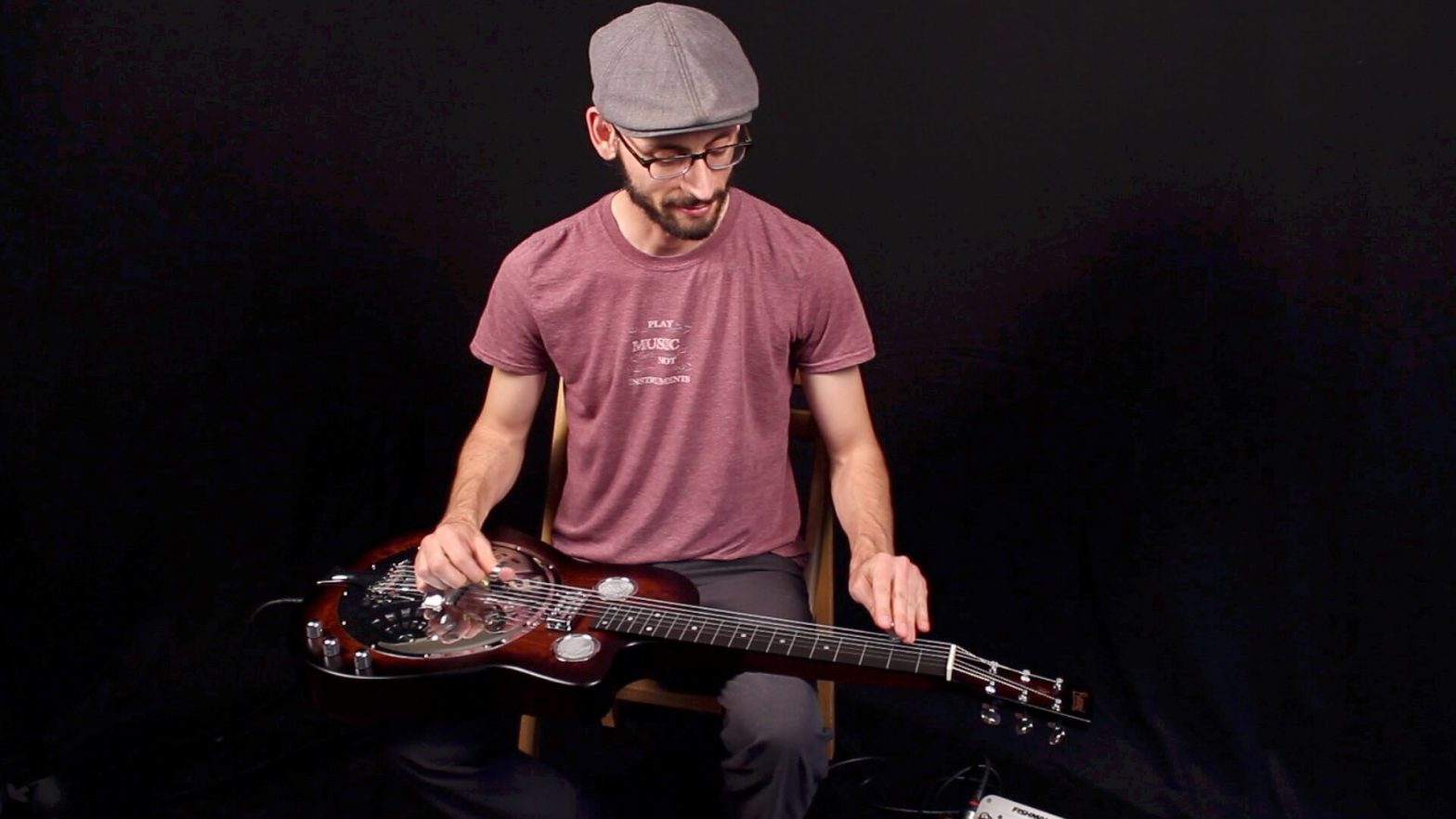 |
Beard Squareneck Copper MountainDobro instructor Mike Witcher demonstrates a new resonator guitar includes a Beard Legend cone and composite back and sides. Read More |
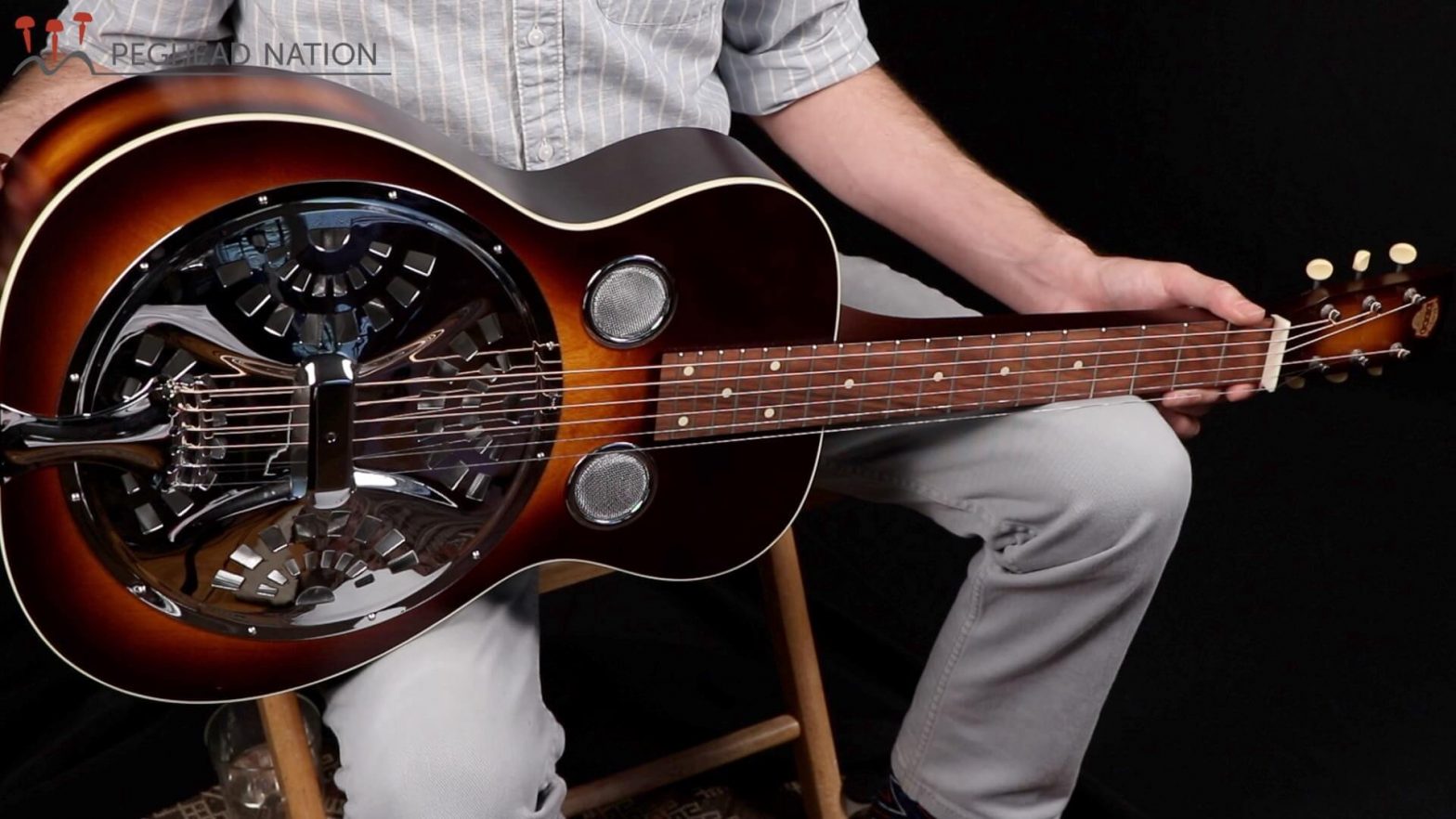 |
Beard Deco Phonic Model 27Dobro instructor Mike Witcher demonstrates a great vintage-style resonator guitar. Read More |
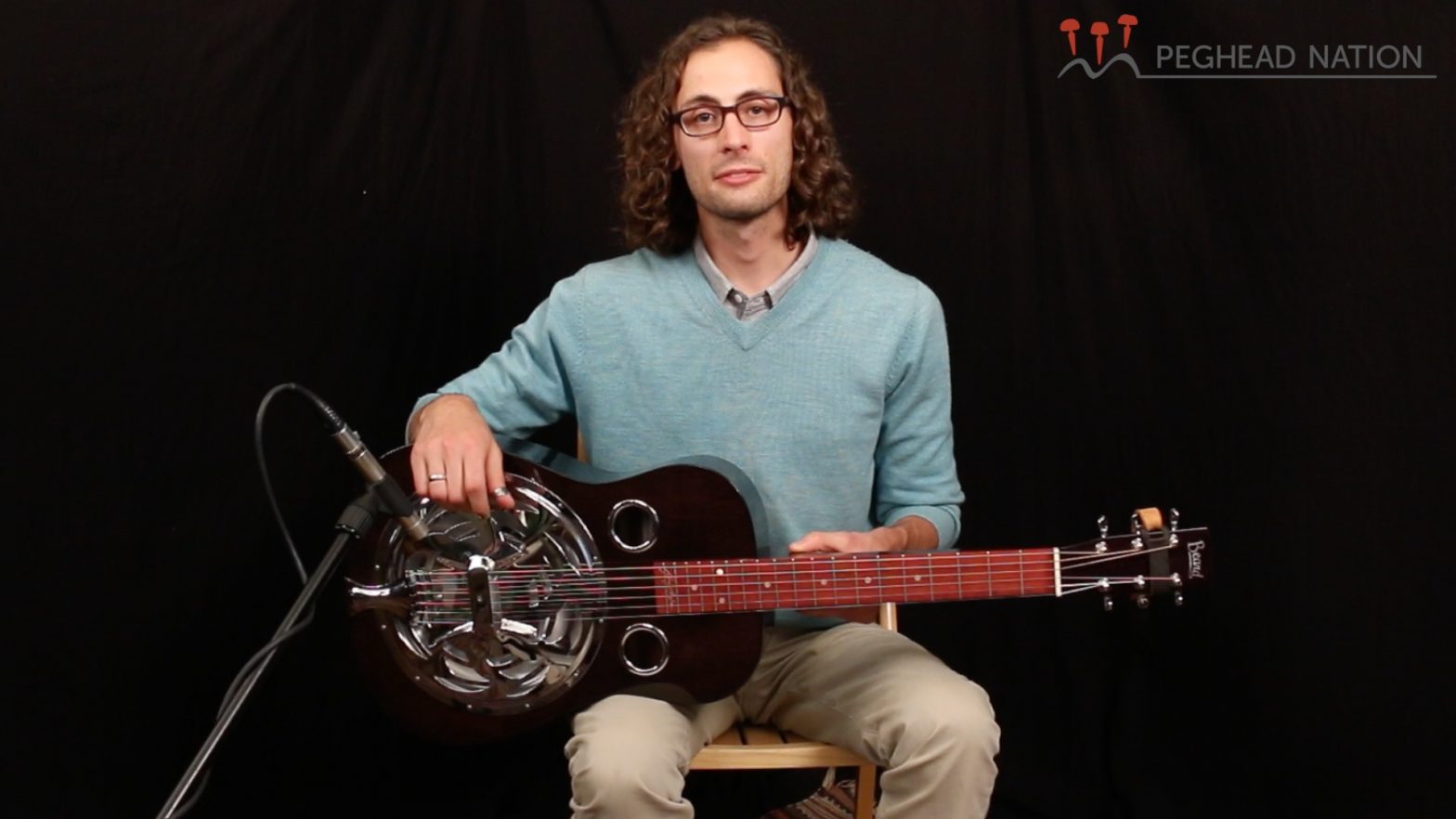 |
Beard Guitars JD Black Beard DemoDobro instructor Mike Witcher demonstrates his primary instrument, the Beard Guitars Jerry Douglas signature model Read More |
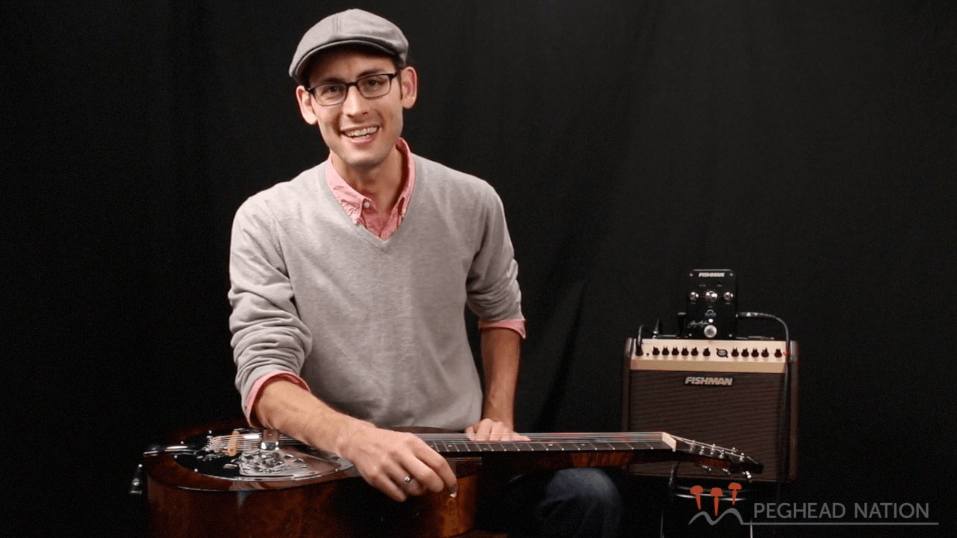 |
Fishman Resophonic AmplificationMike Witcher on amplifying a dobro-style resophonic guitar using Fishman’s Nashville series pickup and Aura imaging pedal. Read More |
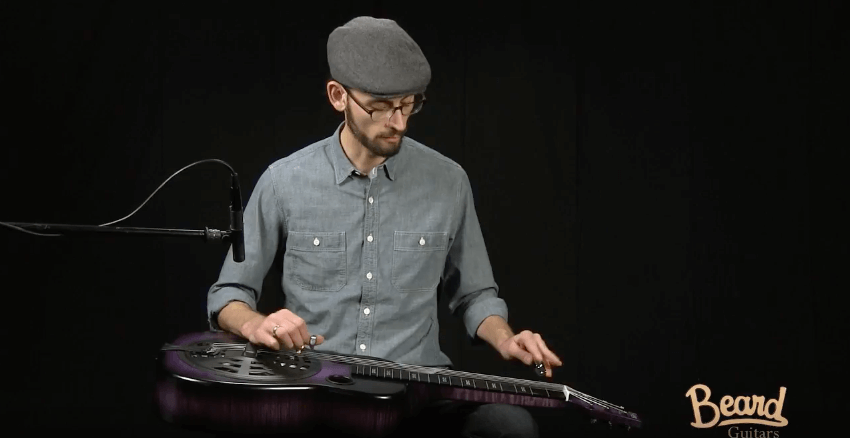 |
Beard Guitars Josh Swift Signature ModelMike Witcher demonstrates the unique-looking collaboration between the bluegrass resophonic guitarist and luthier Paul Beard. Read More |
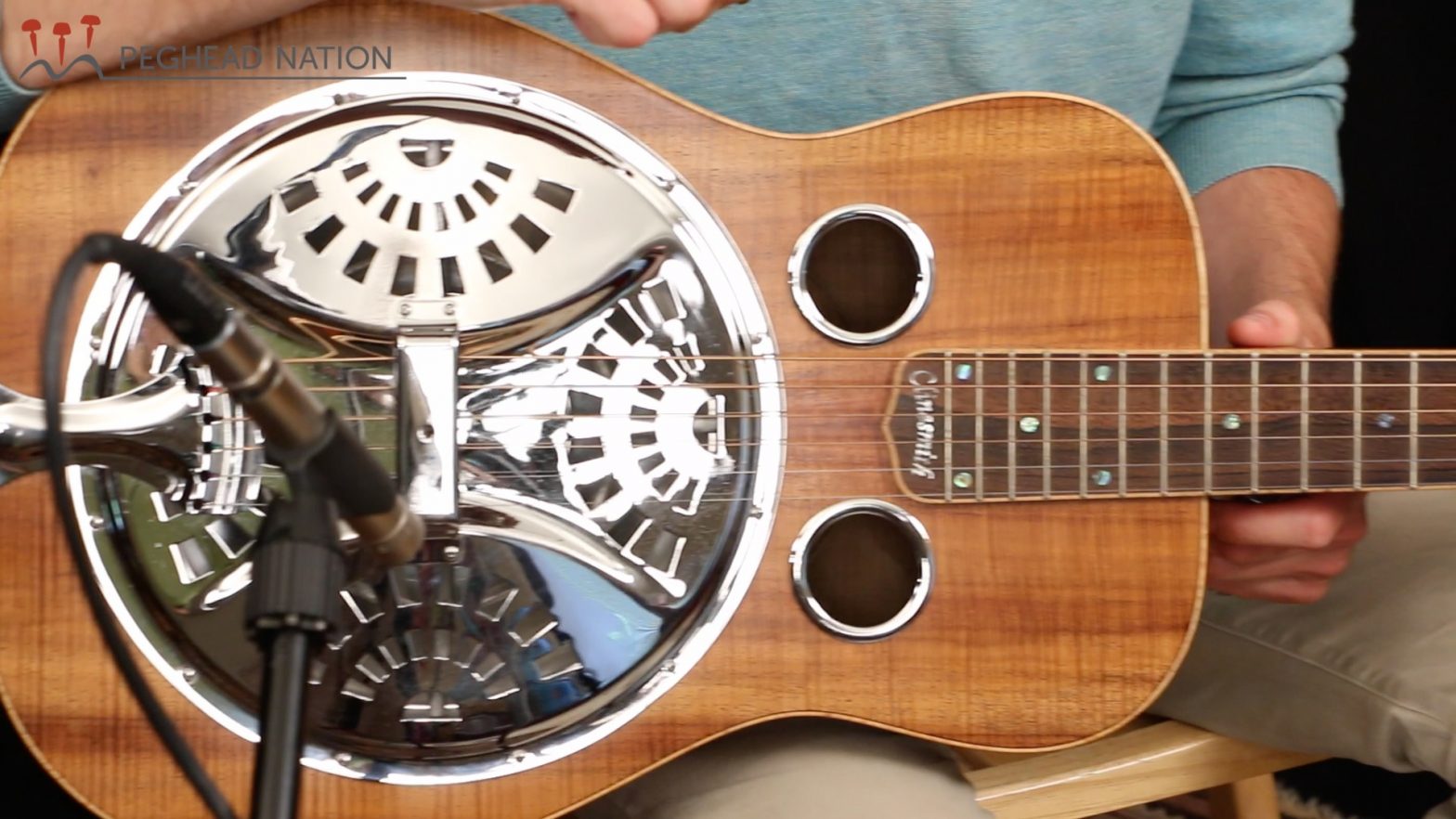 |
Todd Clinesmith ResonatorDobro instructor Mike Witcher demonstrates his koa-bodied Todd Clinesmith squareneck resonator guitar Read More |
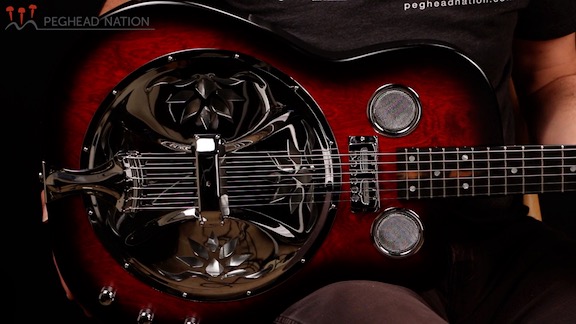 |
Beard Roundneck Copper MountainAn innovative resonator guitar with excellent acoustic and amplified tones. Read More |
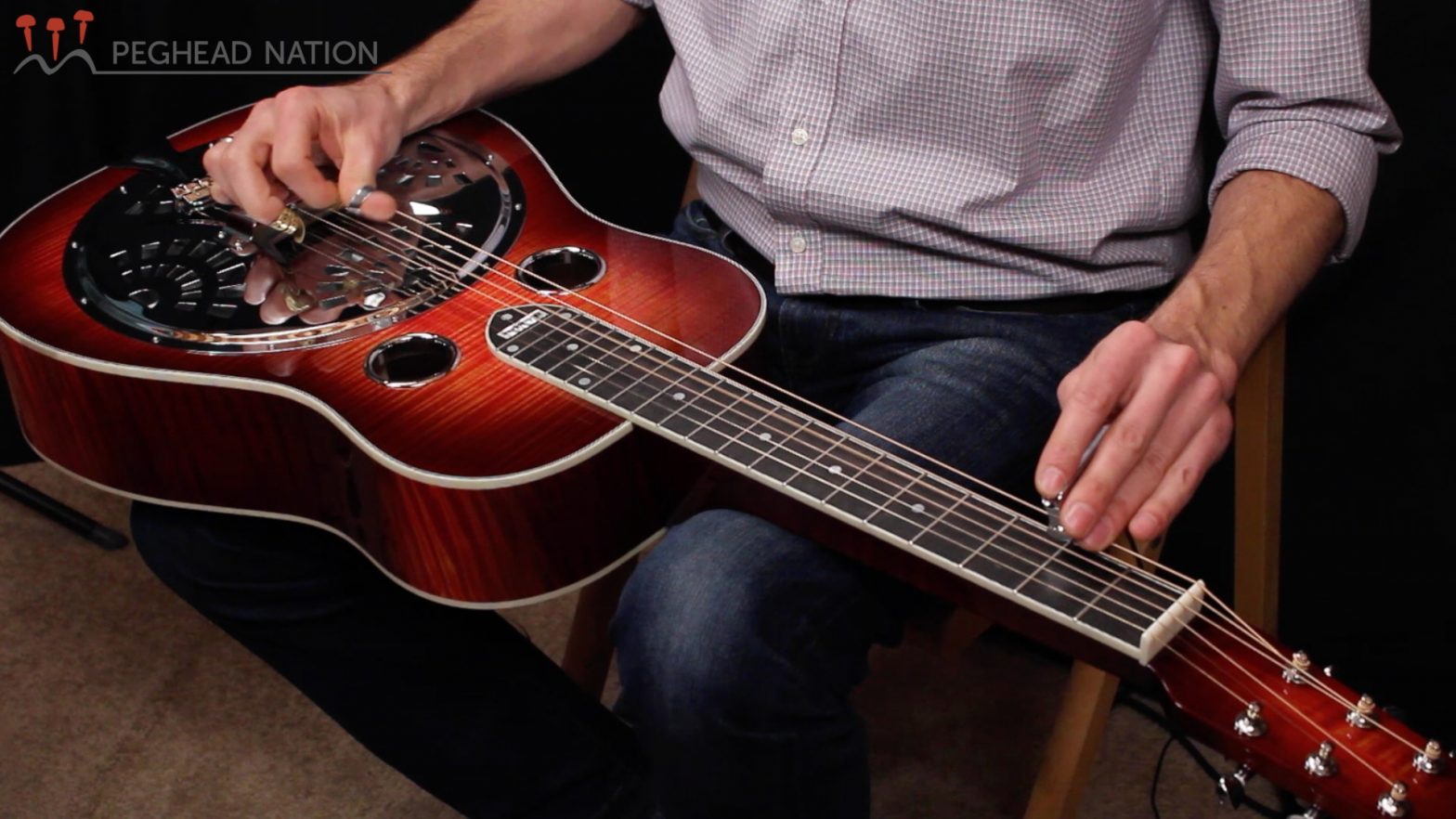 |
Scheerhorn MapleDobro instructor Mike Witcher demonstrates a Scheerhorn Maple resonator guitar. Read More |
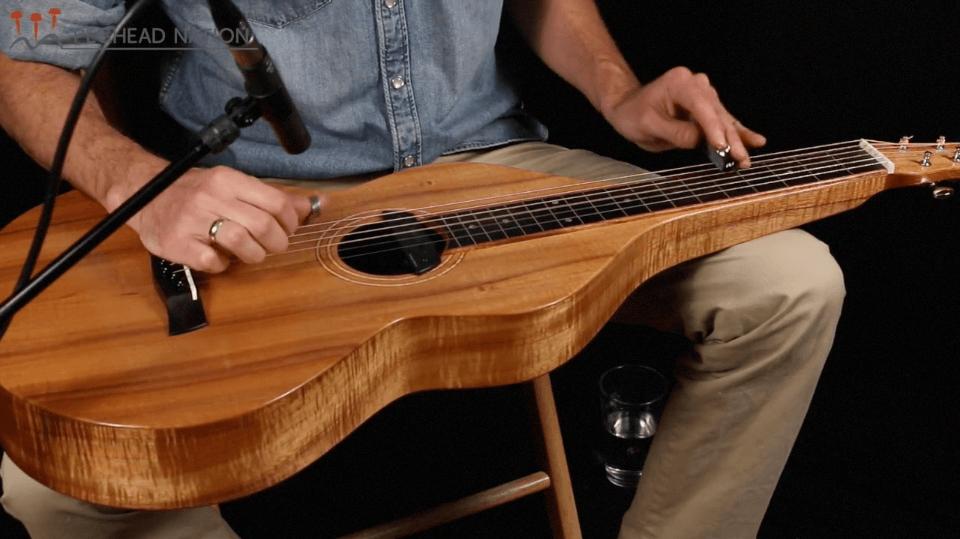 |
Iseman WeissenbornMike Witcher demonstrates a custom Weissenborn-style guitar. Read More |
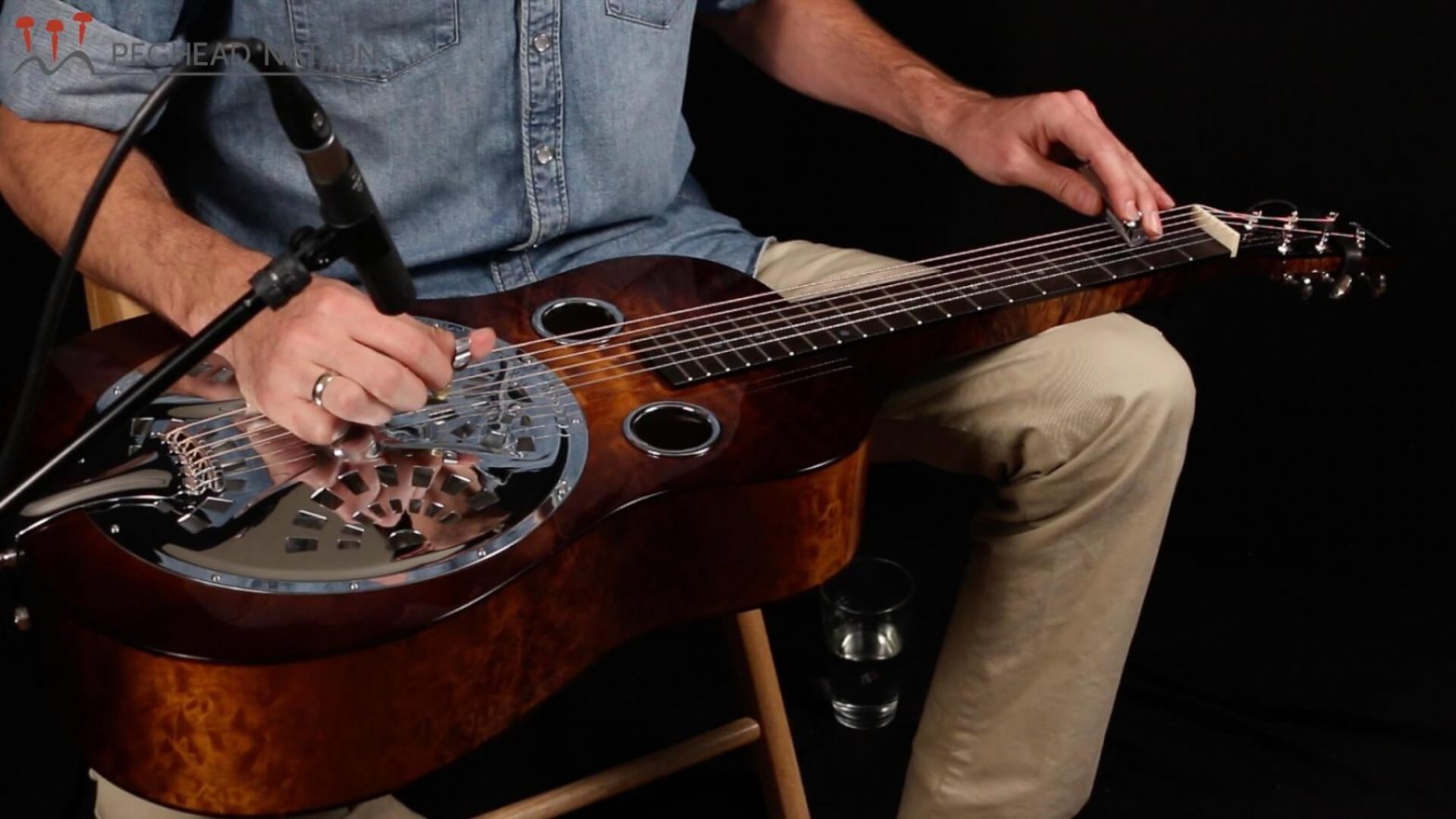 |
Schoonover Resophonic GuitarMike Witcher demonstrates a custom Schoonover dobro. Read More |



